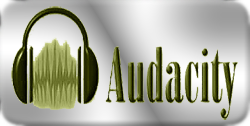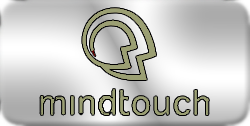Podcasts - Jeremy Schnieder
In 2004, Duke University distributed approximately 1,650 iPods to students that came loaded with various pieces academic information, such as academic calendars, athletic calendars, and advice for new students. While this was not the first link between podcasting and education, it brought to light some of the possibilities regarding podcasts and audio based delivery of information. The door for exploration and experimentation was thrown open. Since 2004, the distribution of iPods has not ceased. An August, 2008, article in the New York Times reports that other institutions are now providing iPods and iPhones to students, but the article also discuses the fears that this is another means of competing for attention of students. The issue then becomes should technologies such as these be seen as a threat or as a new possibility for teaching. The distribution of these tools, however, does allow for a greater and easier use of audio based forms of delivery such as podcasting.
Uses for podcasts definitely vary and are limited more by time and imagination than money. Newkirk Barnes (2007) has proposed the use of podcasts not only as a means of conveying information about programs, specifically library holdings, but also discusses the use of podcasting as a means of advertising. In early goings though, Barnes found that students used the podcasts less frequently than more traditional web-based information. Still, universities across the country are recording lecture series and special events for open use as ITunes U has solved one of the problems with podcasting which is server space. The same tools used for blogging in the classroom, Wordpress and Blogger, though, can eliminate the reliance on programs like ITunes U and allow for what some have called more meaningful uses of podcasting.
Teachers also have a valuable opportunity when it comes to podcast creation. O’Bryan and Hegelheimer (2007) have specifically commented on the potential of podcasts in the language classroom, but the benefits they discuss are not limited to that situation. They write that podcasts support a positive learning environment by providing information in multiple forms, that can be tailored to the needs of the class, and that can easily be referenced at later points. Perhaps even more importantly, as Joe Erickson mentioned in regard to audio commenting, “the spoken word brings aspects to the communication process that simply do not transfer to written communication.” The use of podcasting allows the passion felt by the instructor regarding the information to begin to emerge beyond that often felt in the static, written words of a textbook. O’Bryan and Hegelheimer (2007) also note that podcasts a form of communication that many students are comfortable with. Not only is the information available, but it can go with the students through portable media players. Thus, for populations such as student athletes, EAL students, and even working students, podcasts can provide a portable means of extending the classroom. In the case of writing centers, this allows students to receive some general guidance beyond the hours of operation.
Perhaps, though, the greatest opportunity for podcasting and education lies not with the univeristy or the instructor, but with the students. Lee, McLoughlin, and Chan (2008), have noted the power of podcasting when placed in the hands of the students. Student production becomes a means of active knowledge creation and better understanding. Students can create podcasts that fit with the themes of the class, rather merely relying on the instructor for information thus effectively disrupting the hierarchies much in the manner that Ruijie Zhoa discusses in regard to the use of Google Groups and Google Documents. Dangler, McCorkle, and Barrow (2008) also suggest the production of ethnographies and public service announcements made available to an audience outside the classroom as a means of reinforcing the role of audience and other decisions in meaningful rhetorical situations.
Many of the desires of writing teachers are met in projects involving podcasting. Writing is a necessary component through the creation of scripts and possibly through written explanations and descriptions of the podcasts. Students would work with the research skills sought in a composition class as they prepare their podcasts. Not only are students working with writing and audience in new ways they are actively becoming creators in the manner called for by Dr. Kristine Blair in the introduction to this piece.
Many examples of the power of the creation of podcasts as means of both teaching and learning exists both in the classroom and in other environments in which students are actively learning, such as writing centers. As the Writing Center Director for a small Mid-western university, and through my involvement in a intercampus podcasting project at another university, I have seen the real audience awareness that comes from tutors not only thinking about the needs of the students with whom they work but also in thinking about how best fulfill the needs of students that may have had difficulties working with more traditional educational presentations of information. It is also amazing to watch the growth in the tutors’ abilities to work in a face-to-face environment with students because of the increased knowledge that comes through the process of asking why writing conventions are the way they are while working with the nuances of the subjects they wish to explain. All of this occurs as the tutors gain valuable experience working with various tools needed for podcast creation and other experiences that they can use in their careers beyond college or on their graduate school applications. Students can experience benefits similar to those of tutors when creating podcasts for classmates or audiences with whom they are connected to beyond the classroom.
It is true that there are many benefits that have been associated with podcasting; however, this technology should not be used blindly. A podcast cannot replace a face-to-face consultation between a tutor and a student. Likewise, as was suggested by Toby Coley in regard to wikis, it is very important that instructors familiarize themselves with the tools, time, and effort involved as compared to more traditional methods of education. Though podcast creation by students and loading information on a podcast for students to listen to in order to prepare for class is good, teachers need to balance this time with other workload issues, such as course readings and traditional papers. There are also issues of access regarding podcasting. While there are schools that distribute iPods or require laptops for their students, if not at an institution of this nature, the use of podcasting may provide yet another cost for the students along with another reminder of the difference between the haves and have-nots. As has been a consistent theme throughout this article podcasting must fit the pedagogical needs of the localized context of the classroom or writing center.
Podcasts do provide a valuable, additional means of working with students. By drawing upon the open source tools available for podcast creation or the many free podcast series already available, teachers can supplement more traditional methods of teaching in entertaining and portable ways. The creativity and passion allowed through podcasting brings with it the possibility of emotion where little existed. The learning opportunity that is available through podcast creation is likewise one that deserves serious consideration. Though sometimes labor intensive, podcasting is a part of a web we can weave.
References
Barnes, N. (2007) Using podcasts to promote government documents collections. Library Hi Tech, 25(2), pp. 220-230.
Dangler, D., McCorkle, B., & Barrow, T.(2008). Expanding composition audience with podcasting. Computers and Composition Online. Retrieved from http://www.bgsu.edu/cconline/podcasting/index.htm.
Glater, J. D. (2008, August 21). Welcome, freshmen. have an iPod.” The New York Times.
Lee, M. J.W., McLoughlin, C., & Chan, A. (2008). Talk the talk: learner-generated podcasts as catalysts for knowledge creation.” British Journal of Educational Technology. 39(3), pp. 501-521.
O’Bryan, A., & Hegelheimer, V. (2007). Integrating CALL into the classroom: the role of podcasting in an ESL listening strategies course. ReCALL 19.2, pp. 162-180.





